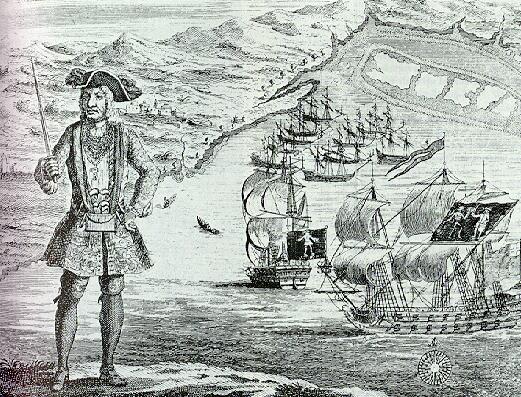Fort São João Baptista de Ajudá was an early 18th century Portuguese fortress embedded within the city of Ouidah in Dahomey. The latter was an African kingdom that had itself just conquered the coastal city when Portugal was granted the territory for a fort, and then it became a French colony until 1960, and it was ultimately renamed Benin in 1975 during the country’s Marxist revolution.
While the fort zone and city were influential, initially, in the history of Portuguese slaving in West Africa and in the kingdom’s interface with the European powers, the fort was soon handed to a Brazilian company and later abandoned — whereupon it fell into disrepair until Portugal reclaimed it in the 1860s. But after this brief restoration to power, it rapidly lost influence and territory as France came to power in the kingdom around it. Even a late 19th century effort to establish a Portuguese protectorate over the city ended with complete French control of everything outside the physical walls of the fort. Quietly, Portugal began disengaging and pulling out but continued to assert authority over the “territory” into the second half of the 20th century.
When French Dahomey was decolonized in 1960, the fort at “Ajudá” was still a Portuguese-ruled enclave in Ouidah, and the Portuguese dictatorship was very determined to retain all its overseas possessions (most of which were then in or approaching open revolt, or had already been annexed to other liberated countries). However, despite its military and strategic origins, São João Baptista de Ajudá proved neither very valuable nor defensible a year later when Dahomey’s new republican government demanded control of the enclave. Mainly because it was infinitesimal in size and had almost no people. That being said, those still there seemed pretty darn determined to not go down without a fight … a really, comically pathetic fight.
From the Wikipedia summary of the final event:
Until its annexation by Dahomey in 1961, São João Baptista de Ajudá was probably the smallest recognized separate modern political unit, initially around 1 km2 and being reduced until only 2ha (5 acres) by that time: according to the census of 1921 it had 5 inhabitants and, at the moment of the ultimatum by the Dahomey Government, it had only 2 inhabitants representing Portuguese sovereignty, who tried to burn it rather than surrendering it. When the fort was captured, they were hastily escorted to the Nigerian border and expelled from the country.
So…not exactly the Alamo or 300 Spartans against the Persian Empire.
I assume that the lesson “pick your battles” was not taken to heart by those two residents and their five-acre colony.
In the end, the fort was not burned and was eventually restored as a historic site with funds from the post-colonial Portuguese government some time after the 1975 transition to democracy.



